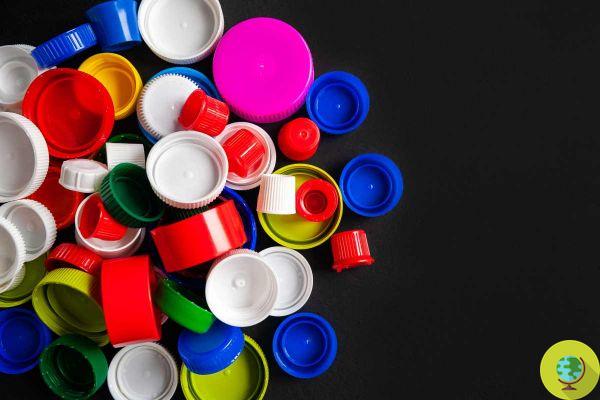
Doctors and environmentalists are calling for international action to control plastic chemicals
Doctors and environmentalists are calling for international action to control plastic chemicals and scale back the production of this material
Plastic poses a significant threat not only to the environment and ecosystems, but to human health as well. This is what emerges from a study conducted by IPEN in collaboration with International Pellet Watch (IPW), which aimed to investigate the presence of dangerous and polluting chemicals present in pre-production plastic pellets lost in the environment (perhaps due to shipwrecks or loss of load of the ships carrying them, as we have told you in this article) and plastic pellets recycled purchased from recycling plants.
The researchers analyzed the two types of pellets separately: on the one hand, preproduction pellets containing substances such as bisphenol A, flame retardants and ultraviolet light stabilizers, as well as substances known to interfere with the endocrine system; on the other hand, pellets dispersed in the environment and stranded (collected in 22 sites in Africa, North and South America, Asia, Australia, the Caribbean and Europe) containing 13 polychlorinated biphenyls and 10 ultraviolet light stabilizers. The results showed, in both cases, the presence of toxic and polluting chemical additives that represent a serious threat to human health and the environment: the health effects include a increased risk of cancer and changes in the endocrine system (with effects on development, growth and reproductive capacities).
The results of these studies are very worrying, particularly those relating to recycled plastic pellets from recycling plants that are used to create other plastic products. These results suggest a review of our existing policies and the strict regulation and monitoring of recycling plants - he explains Mark Penalver, among the authors of the study. - While these facilities may offer a solution to the plastics problem, however, they also create another dangerous, toxic and dangerous health problem. People are already exposed to harmful chemicals through the use of plastics, but are even more at risk with the use of these recycled materials.
What is particularly and unexpectedly worrying, therefore, are the results of the studies conducted on recycled plastic pellets. So far, recycling has been thought of as an excellent strategy for the recovery of plastic materials, to avoid their dispersion into the environment and the use of further petroleum to produce new plastic - but obviously this reasoning is wrong: as demonstrated by this study, the widespread use of toxic chemical additives in the production of recycled plastics makes this an unacceptable raw material for the creation of new products, negating the beneficial effect of recycling for the environment.
It is estimated that over 10.000 chemicals are present in plastics: of these, about 5.000 are chemical additives that give special characteristics to the products. Many of these chemicals are toxic, but only some are subject to regulatory control, as studies on the risks for humans and the environment of exposure to these substances released from plastics are still too scarce and incomplete.
Follow your Telegram | Instagram | Facebook | TikTok | Youtube
Source: IPEN
We also recommend:
- How many plastic bottles does humanity produce every minute? This video will literally take your breath away
- Agricultural land is overrun with plastic waste even more than oceans. FAO report raises the alarm
- Amazon's plastic waste is suffocating the planet: 270 tons in just one year


























